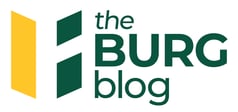 Sometime bfore I enrolled here, someone named Jairo Hernandez started an American Sign Language (ASL) club on campus. It was an overnight success and they ended up having to meet multiple times a week because their group was so large.
Sometime bfore I enrolled here, someone named Jairo Hernandez started an American Sign Language (ASL) club on campus. It was an overnight success and they ended up having to meet multiple times a week because their group was so large.
Professor Kelly Morgan in the Communications Media department began implementing ASL language courses and now we have an entire minor in deaf studies. And it’s thriving. The deaf studies minor includes six classes; four levels of ASL classes, which count as a foreign language requirement, and two classes in deaf studies.
ASL is rapidly growing in use in the hearing community and I believe there are only positive outcomes for those who learn it. Any field or industry could benefit from using ASL, but I want to focus on two of the most important ones: law enforcement and medical professions. Police officers who know how to sign can use the langugage to deescalate a potential confrontation with a deaf person. There may be a tendancy to assume an individual is not mentally stable because they either don't speak or the officer cannot understand them. And in the medical profession, a doctor or healthcare provider fluent in sign language can possibly better understand their deaf patient’s health history.
ASL has its own sentence structure just as any other language would. Time, subject, verb, then comment or clarifying statement. If you’re worried about the prospect of learning another language, don’t be! Throughout my time in deaf studies, I’m learning that a lot of people find sign language easier to learn than other languages because it consists of using a lot of muscle memory and many of the signs visibly represent the word they belong to.
And there’s other benefits to participating in the deaf studies minor. Learning the rich culture and history is one of them. Hands and Voices defines deaf culture as a focus on enhanced visual perceptiveness, which has given the community a history of innovative ASL-based storytelling. It has also produced a set of role models this community can relate to through shared experiences.
Learning about this community can also help combat any prejudice or discrimination against those who are deaf. For example, I was recently watching a comedian who began to make fun of the deaf as part of his act. He flailed his hands around and mocked the way a deaf person speaks. It wasn’t funny, and the deaf studies minor in me was appalled that someone would even think about touching on a sensitive topic like that. It was also upsetting to see how nobody in the crowd seemed to understand this comedian was inforcing audism, which is the notion that one is superior based on their ability to hear. The more people gleam an understanding of the deaf community, the more people will understand the fight against audism.
Learning ASL is a positive thing. It can only help you connect better with deaf culture. While they may have lost their hearing, deaf people have gained an entire community and you could be a part of it.
For any questions about the deaf studies minor contact Professor Kelly Morgan, kmorgan@fitchburgstate.edu.

